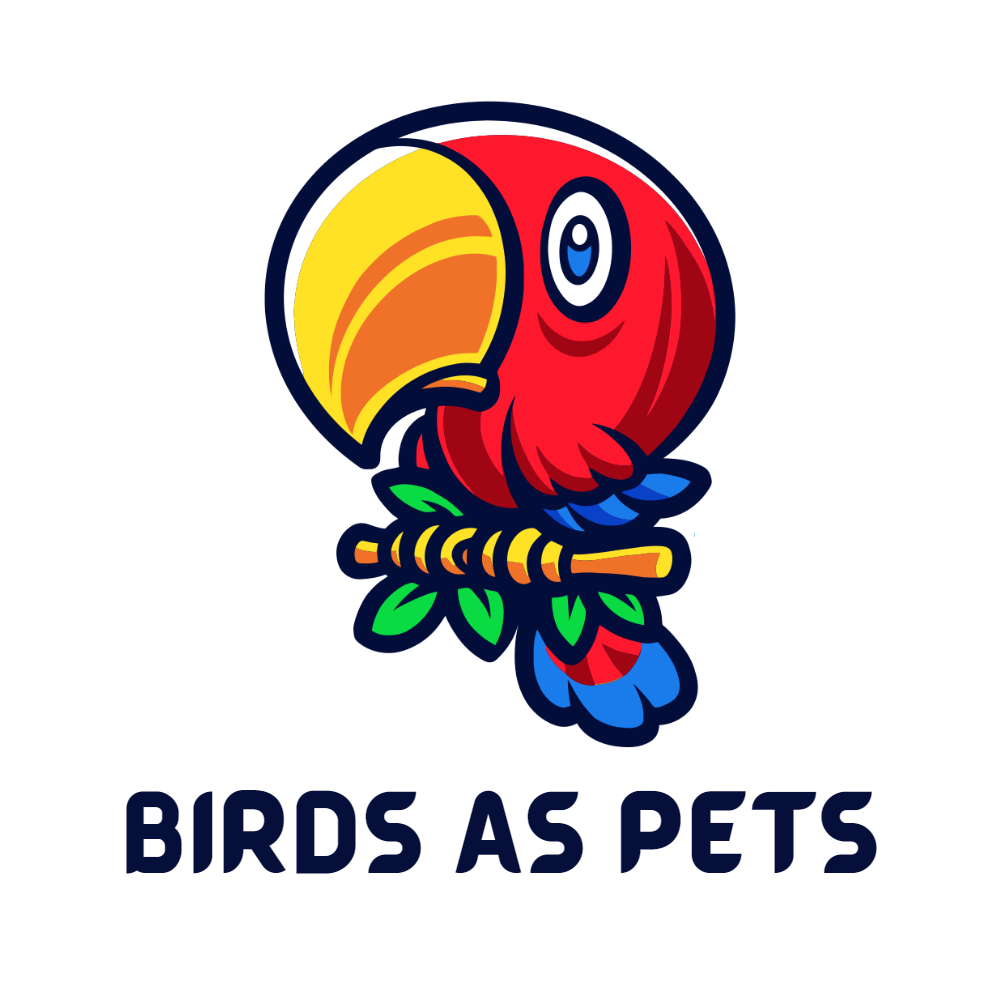If you’re looking for a small, friendly, and social pet bird, Lineolated Parakeets might be the perfect choice for you. These charming little parrots are known for their playful and gentle nature, making them an excellent addition to any family. In this article, we’ll cover everything you need to know about Lineolated Parakeets as pets, from their natural habitat to their care requirements and more.
Quick Reference Table: Lineolated Parakeet Facts
| Fact | Details |
|---|---|
| Scientific Name | Bolborhynchus lineola |
| Size | 6 to 7 inches (15 to 18 cm) |
| Weight | 1.5 to 2 ounces (42 to 56 grams) |
| Lifespan | 10 to 15 years in captivity |
| Colors | Various shades of green, blue, turquoise, and more |
| Noise Level | Low to moderate |
Where Do Wild Lineolated Parakeets Live?
Lineolated Parakeets are native to the high-altitude cloud forests of Central and South America. They can be found in countries such as Mexico, Guatemala, Panama, Colombia, and Venezuela. In the wild, these birds live in flocks and prefer dense tree canopies, where they can find shelter and forage for food.
Lineolated Parakeet Lifespan: How Long Do They Live as Pets?
With proper care, Lineolated Parakeets can live between 10 to 15 years in captivity. To ensure they live a long and healthy life, it’s important to provide them with a balanced diet, a clean and safe living environment, and regular veterinary check-ups. Owning a Lineolated Parakeet is a long-term commitment, so make sure you’re prepared for the responsibility before bringing one home.
Are Lineolated Parakeets Good Pets?
Lineolated Parakeets are friendly, affectionate, and intelligent birds, making them excellent pets. They are known for their gentle and social nature, which makes them an ideal choice for families with children. These birds also have a lower noise level compared to other parrot species, making them more suitable for apartment living or shared housing situations.
Are Lineolated Parakeets as Pets Good for Beginners?
Yes, Lineolated Parakeets can be a great choice for beginner bird owners due to their friendly disposition, manageable size, and relatively simple care requirements. However, it’s essential to learn about their specific needs and dedicate time and effort to their care, regardless of your experience level.
Are Lineolated Parakeets Easy to Care For?
Lineolated Parakeets are relatively easy to care for compared to larger parrot species. They require a balanced diet, a clean and spacious cage, and plenty of social interaction. Regular veterinary check-ups are also important to ensure their health. As long as you’re committed to providing your Lineolated Parakeet with proper care, they can thrive as pets.
Lineolated Parakeet Pros and Cons
| Pros | Cons |
|---|---|
| Friendly and social | Require daily social interaction |
| Lower noise level | May still be too noisy for some living situations |
| Easy to care for | Long-term commitment (10 to 15 years) |
| Suitable for beginners | Still require research and dedication to their care |
Lineolated Parakeet Price and Costs
The initial cost of a Lineolated Parakeet can range from $200 to $500, depending on factors like age, color, andbreeder reputation. In addition to the cost of the bird, you’ll need to invest in a suitable cage, toys, perches, and other accessories, which can add several hundred dollars to the initial setup. Ongoing expenses include food, veterinary care, and occasional replacement of cage accessories.
Where to Buy Lineolated Parakeets
When looking to buy a Lineolated Parakeet, it’s essential to find a reputable breeder, pet store, or rescue organization. A responsible breeder will ensure the bird is healthy, well-socialized, and bred ethically. Rescue organizations may also have Lineolated Parakeets available for adoption, which can be a great way to provide a loving home to a bird in need.
Caring for Lineolated Parakeets
Lineolated Parakeet Food
A balanced diet is crucial for the health of your Lineolated Parakeet. Their diet should consist of high-quality pellets, fresh fruits, vegetables, and occasional seeds and nuts. Avoid giving them foods high in fat, salt, or sugar, and always provide fresh water.
Health and Common Issues
Lineolated Parakeets are generally healthy birds, but they can be prone to some common health issues, such as respiratory infections, feather plucking, and obesity. Regular veterinary check-ups can help detect and treat any health issues early. Maintaining a clean living environment and providing a balanced diet can also help prevent many health problems.
Signs of Healthy Lineolated Parakeets
| Healthy Lineolated Parakeet | Sick Lineolated Parakeet |
|---|---|
| Alert and active | Lethargic or fluffed feathers |
| Bright, clear eyes | Discharge or swelling around the eyes |
| Smooth, well-groomed feathers | Feather plucking or poor feather condition |
| Regular eating and drinking | Loss of appetite or weight loss |
| Normal droppings | Changes in color, consistency, or frequency of droppings |
| No difficulty breathing | Wheezing, sneezing, or labored breathing |
Lineolated Parakeets Pet Insurance
Investing in pet insurance for your Lineolated Parakeet can be a wise decision, as it helps cover unexpected veterinary costs and ensures your feathered friend receives the best care possible. Pet insurance plans can vary, so it’s essential to research and choose a plan that suits your needs and budget. Some plans cover accidents, illnesses, and routine care, while others may only cover specific situations.
Personality and Behavior
Lineolated Parakeets are known for their friendly, gentle, and inquisitive nature. They are intelligent birds that enjoy exploring their environment and interacting with their human companions. They are generally not as loud or demanding as some other parrot species, making them a popular choice for first-time bird owners or those looking for a more laid-back pet. Their calm demeanor and charming personalities make them an excellent addition to any home.
Are Lineolated Parakeets Social?
Yes, Lineolated Parakeets are social birds that thrive on interaction with their owners and other birds. They form strong bonds with their human family and enjoy spending time on their owners’ shoulders or being involved in daily activities. It’s crucial to provide your Lineolated Parakeet with plenty of social interaction and mental stimulation to keep them happy and healthy. If you’re unable to spend a significant amount of time with your bird, consider getting a second Lineolated Parakeet for companionship.
Speech and Noise of Lineolated Parakeets
Lineolated Parakeets are not known for their talking ability, but they can mimic some sounds and may learn a few words with consistent training. They are generally quieter than many other parakeet species, making them more suitable for those who live in apartments or have noise-sensitive neighbors. However, they do make some natural vocalizations, such as chirps and whistles, which are typically not loud or disruptive.
Similar Species to Lineolated Parakeets
There are several species of parakeets that share similarities with Lineolated Parakeets, including:
- Bourke’s Parakeets
- Grass Parakeets
- Indian Ringneck Parakeets
- Monk Parakeets
While these species share some characteristics with Lineolated Parakeets, each has its unique traits and care requirements. It’s essential to research any parakeet species you’re considering as a pet to ensure they are a good fit for your lifestyle and living situation.
Can Lineolated Parakeets Live With Other Pets and Birds?
Lineolated Parakeets can often coexist peacefully with other birds, especially when introduced at a young age. They may also get along with other household pets, such as dogs and cats, as long as the animals are well-behaved and supervised during interactions. It’s essential to monitor all interactions between your Lineolated Parakeet and other pets to ensure their safety and well-being.
Are Lineolated Parakeets Legal to Have as Pets?
In most areas, Lineolated Parakeets are legal to own as pets. However, local laws and regulations can vary, so it’s essential to check with your local authorities or a knowledgeable veterinarian before bringing a Lineolated Parakeet into your home.
Additional Resources
- Lineolated Parakeet Facebook Group: The Linnie Connection
- Avian Avenue Forums: www.avianavenue.com
- Book: “A Guide to Popular Conures and Other Small Parrots” by Rosemary Low
FAQ for Lineolated Parakeets as Pets
Do Lineolated Parakeets talk?
Lineolated Parakeets are not known for their talking ability, but they can mimic some sounds and may learn a few words with consistent training.
Are Lineolated Parakeets suitable for families with young kids?
Yes, Lineolated Parakeets are generally gentle and calm birds that can make great pets for families with young children, as long as proper supervision and handling guidelines are followed.
Can Lineolated Parakeets be trained?
Yes, Lineolated Parakeets are intelligent birds that can be trained to perform tricks and learn basic commands. Positive reinforcement techniques, such as clicker training, work well withthese birds.
How do I know what gender Lineolated Parakeets are?
Sexing Lineolated Parakeets can be challenging based on physical appearance alone. The most accurate method for determining the sex of your bird is through DNA testing, which involves collecting a small blood or feather sample and sending it to a laboratory for analysis.
What is the average lifespan of a Lineolated Parakeet?
With proper care and nutrition, Lineolated Parakeets can live for 10-15 years or longer. Providing a balanced diet, appropriate housing, and regular veterinary care will help ensure a long, healthy life for your pet.
What should I feed my Lineolated Parakeet?
A balanced diet for a Lineolated Parakeet should include a high-quality, pelleted bird food, fresh fruits and vegetables, and a limited number of seeds and nuts. It’s essential to provide fresh water daily and avoid feeding your bird foods that are high in fat or sugar, as well as those that are toxic to birds, such as avocado, chocolate, and caffeine.

